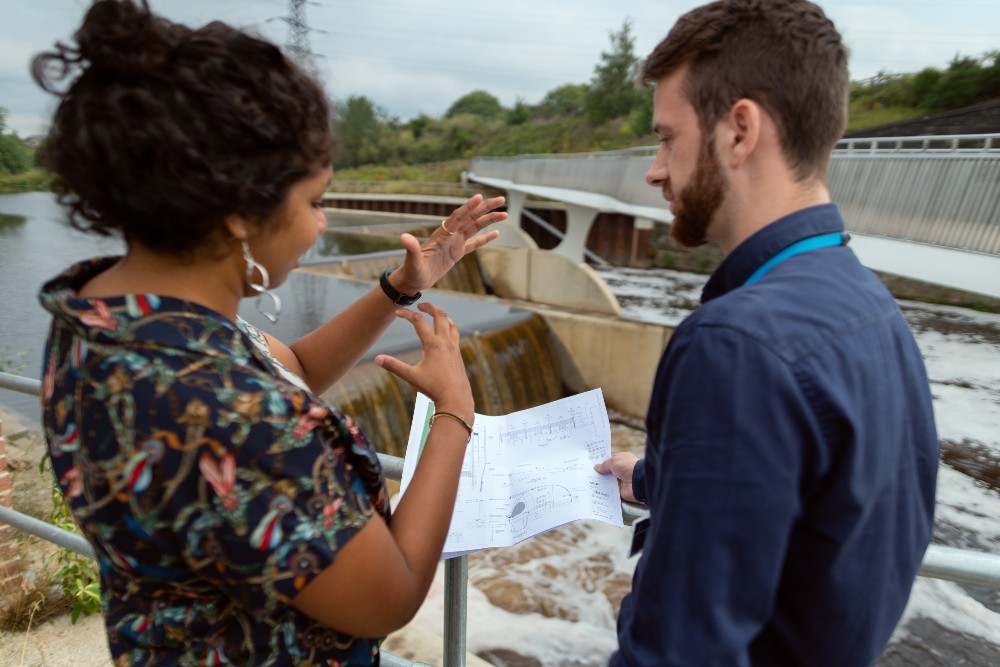
We are a reader-supported education publication. When you buy through links on our site, we may earn an affiliate commission to help us keep providing content.
Nature lovers interested in developing solutions for protecting the natural world may want to enroll in an environmental policy program.
An environmental policy major integrates natural, cultural, economic, and political sciences to address critical environmental issues facing our planet, including water quality, pollution, nonrenewable energy, natural resource degradation, loss of biodiversity, climate change, and recreation.
If you’ve ever wondered if an environmental policy major was suitable for you, this guide will provide all the details you need to decide if you should pursue this degree program.

Why Environmental Policy?
According to the United Nations Environment Programme (UNEP), unsustainable exploitation of our natural resources could double from 92 billion to 190 billion by 2060, while greenhouse gases are likely to increase by 43%.
Studying for a degree in environmental policy leads to several gratifying careers that aim to solve these problems and shape the laws and regulations that protect fragile ecosystems.
Professionals in this field examine current policies and ecological issues while brainstorming sustainable alternatives. Innovative solutions might include setting new vehicle emissions standards, revising conservation management practices in national parks, or presenting new legislation banning plastic bags.
Environmental policy majors are the driving force behind a healthier, well-functioning planet — ensuring positive ecological health and more sustainable utilization of our natural resources for future generations.

Coursework for Environmental Policy Majors
Environmental policy curriculums are interdisciplinary and address emerging trends related to global climate change, food and water scarcity, and the need for cleaner energy resources.
Students are also likely to encounter professors from wide-ranging backgrounds that can impart their subject-specific knowledge to students. For instance, physics professors may spark discourse regarding renewable energy while biology experts can explain the importance of conserving biodiversity.
Central to each course is society’s relationship with the environment from an economic, political, and cultural standpoint. As such, students enrolled in environmental policy programs take courses that lean toward the humanities and social sciences.
After completing general education requirements, students may be able to take the following courses in an environmental policy degree program:
- Conservation Management
- Land-Use Planning
- Global Environmental Change
- Environmental Economics
- Watershed Management
- Sustainability Planning
- Food and Water Policy
- Adaptive Management Planning
- Environmental Ethics
- Environmental Law
Other courses teach students how to conduct ecological analyses — such as generating toxicology reports for U.S. Environmental Protection Agency (EPA) brownfields or risk assessments for future oil spills on the Gulf Coast — to examine real-world environmental impacts.
Some colleges also encourage students to choose a specialization for their environmental policy major to hone their research interests and skills within a particular subfield.

Careers for Environmental Policy Degrees
Environmental policy degree holders may obtain jobs in local, state, and federal government agencies, engineering companies, management or scientific consulting firms, private corporations, the medical field, and outdoor settings — for example, national parks, nonprofit fieldwork, or recreation.
Outdoor recreation specialists maximize leadership and teaching skills to educate the public about the local environment and the measures they can take to help protect it. This work is also closely related to conservation education forester and park ranger positions.
Foresters usually manage forested lands and devise monitoring plans for land regeneration and harvesting. They might also generate pest and wildfire control measures while supervising teams of conservation workers and technicians. The anticipatory job growth for conservation scientists and foresters is 7% in the coming decade, mainly due to increasing concerns about wildfire management.
Other career opportunities for environmental policy majors include:
- Compliance officers: Evaluate and investigate compliance with environmental laws and regulations, such as for agriculture or water management industries.
- Climate change policy analysts: Propose or modify policies designed to combat climate change impacts. Researches and analyzes data to make actionable recommendations for legislation, advocacy campaigns, and fundraising.
- Sustainability specialists: Develop sustainability goals, initiatives, and strategies for waste management, green buildings, smart community planning, and green procurement strategies. Provides ongoing sustainability assessments and monitors indicators related to energy, natural resource use, recycling, etc.
- Environmental economists: Research, develop, and present economic analyses for ecological protection and the use of natural resources. Evaluates the benefits, costs, incentives, and economic consequences of utilizing natural resources and alternatives.
Students who obtain a bachelor’s degree in environmental policy may decide to attend law school afterward to study environmental law.
Environmental lawyers help businesses yield to state and federal environmental laws and regulations. They may also assist public interest organizations and nonprofits in pursuing legal action against parties responsible for environmental degradation.
Change the World With an Environmental Policy Major
There’s never been a more critical time for students to study environmental policy. As global warming ramps up and the world population continuously exploits our most precious resources, environmental policy majors will play a critical role in safeguarding our ecosystems with sounder policies and management practices.
latest in learning!
Get the latest updates in learning, teaching and everything in between! Whether you're a student or an educator, we offer the inspiration you need to fuel your classroom experience.









